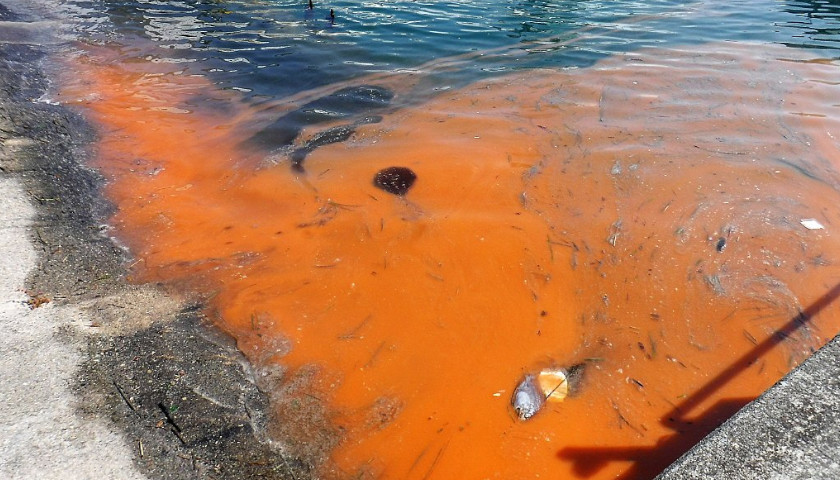Red tide is continuing to linger along the western coastline of Florida, leading to hundreds of tons of dead marine life. The Florida Capital Star previously reported on the red tide surge in the Tampa Bay area around the time of Tropical Storm Elsa, but the tide has not yet abated.
The Florida Fish and Wildlife Commission (FWC) collected over 100 samples of water around the Tampa Bay area last week and found high concentrations of Karenia Brevis, a bacteria known to be prevalent during red tide surges.
County officials in southwest Florida have issued respiratory warnings for residents with sensitive breathing to avoid coastlines with red tide.
Some are beginning to speculate the Piney Point phosphate reservoir leak back in the spring could have contributed to its surge and lingering effects. The State of Florida subsequently allocated over $100 million toward a cleanup effort at Piney Point.
Robert Weisberg, professor at the University of South Florida, said he thinks Piney Point accelerated the red tide surge.
“I don’t think it would’ve taken off to the levels that we’re seeing without Piney Point,” Weisberg explained.
Florida Department of Environmental Protection Interim Secretary Shawn Hamilton said he will be in the Tampa area addressing red tide concerns and to bring assurance that the highest levels of state officials are working on the issue.
“I think it’s important to make sure they know that they have a connection to the highest level of the department, to make sure there are no unanswered questions,” Hamilton said. “We’ve been involved since day one securing funding avenues. And we’ll continue to do that.”
Florida Gov. Ron DeSantis said FWC’s Center for Red Tide Research received nearly $5 million in the budget he signed last month.
“We actually created a separate fund to be able to respond in real time to things like blue-green algae and red tide,” DeSantis said. “We have that pot of money. We’re using it, and we’re helping both Pinellas and Hillsborough counties as it needs. And we’re going to continue to do that. Obviously, red tide is naturally occurring. But if you have fish or some of that, and you clean it up quicker, I think a lot of the scientists believe that that prevents the red tide from getting worse or at least mitigate.”
– – –
Grant Holcomb is a reporter at the Florida Capital Star and the Star News Network. Follow Grant on Twitter and direct message tips.
Photo “Red Tide” by melvil. CC BY-SA 4.0.








